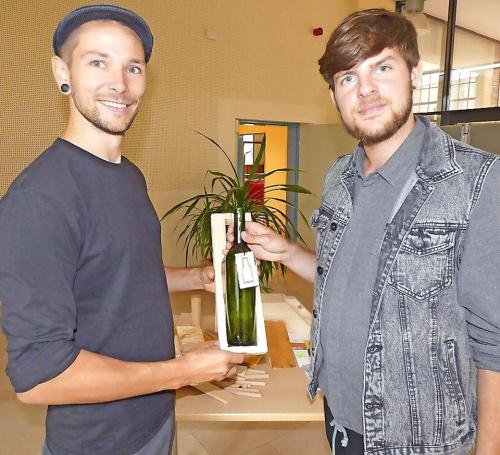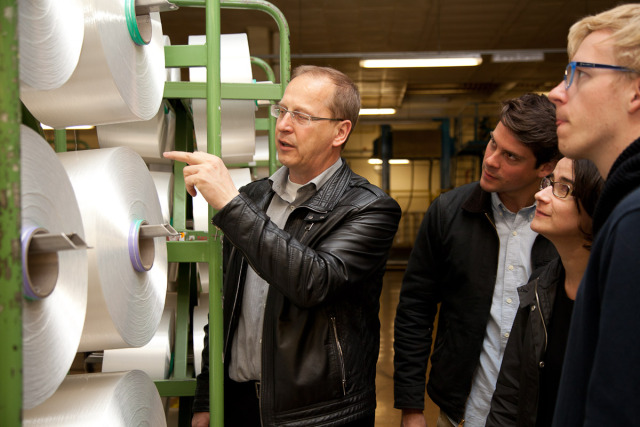
Janek Frölich (l.) und Patrick Giese präsentieren eine Weinflaschenverpackung aus Reststoffen einer Gubener Holzbaufirma.
Foto: Jana Pozar/zar1
“GUBEN Teilnehmer des Projekts Cobra haben am gestrigen Freitag in der Stadtverwaltung die Ergebnisse ihrer fast einjährigen Kooperation mit Gubener Firmen und Vereinen vorgestellt. Cobra steht für Collaborative Labor Opportunities in Brandenburg und will Absolventen von Brandenburger Universitäten und Unternehmer zusammenbringen.”
Lesen Sie den gesamten Beitrag in der Lausitzer Rundschau.
